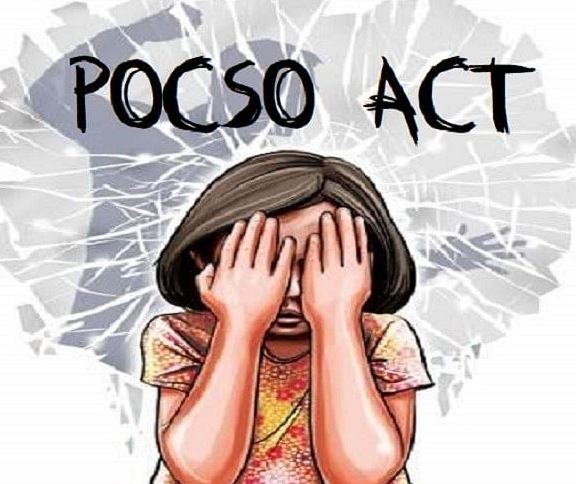Introduction:
Welcome to the official blog of the Law Offices of Kr. Vivek Tanwar Advocate and Associates, where we are dedicated to providing litigation support services for matters related to POCSO ACT 2012. In today’s blog post, we aim to shed light on the prevailing issues surrounding POCSO ACT 2012, the legal framework in place for their protection, and the steps we can take as a society to combat these heinous acts. Join us as we explore this critical subject and empower you with the knowledge to protect your rights and safety.
WHAT IS THE POCSO ACT 2012?
The Protection of Children from Sexual Offences (POCSO) Act, 2012 is a crucial legislation enacted by the Government of India to provide legal protection for children against sexual offences. It is a comprehensive law that specifically addresses sexual abuse, exploitation, and pornography involving children.
The POCSO Act defines various sexual offences against children and prescribes stringent punishments for perpetrators. It recognizes a child as any individual below the age of 18 years and covers both girls and boys. The Act covers a wide range of offences, including but not limited to:
- Penetrative Sexual Assault: Any form of sexual penetration of a child’s body, including rape, oral sex, or the introduction of objects into the child’s private parts.
- Non-Penetrative Sexual Assault: Acts such as touching the child’s private parts, indecent exposure, or making the child touch the offender’s private parts.
- Sexual Harassment: Unwanted physical contact, making sexually coloured remarks, or showing pornography to a child.
- Child Pornography: Engaging a child to participate in or capture explicit sexual images or videos of a child, distributing or possessing such material.
Key Provisions and Features:
- Expanded Definitions: The act defines a child as any person below the age of 18 years and extends the scope of offences to include not only penetrative acts but also non-penetrative acts, sexual harassment, and the use of children for pornographic purposes.
- Child-Friendly Approach: The Act incorporates a child-friendly approach by ensuring that the child’s testimony is recorded in a non-intimidating and non-threatening manner. It provides for the presence of a support person during the recording of the child’s statement and the trial.
- Special Courts: The POCSO Act mandates the establishment of Special Courts in each district to expedite the legal proceedings. These courts are responsible for handling cases exclusively related to offences against children, ensuring speedy trials and justice.
- Confidentiality and Protection: The Act emphasizes the importance of maintaining the privacy and confidentiality of the child throughout the investigation and trial. It prohibits the disclosure of the child’s identity, ensuring their protection from societal stigma.
- Mandatory Reporting: The Act makes it obligatory for any person who has knowledge or a reasonable suspicion of child sexual abuse to report it to the concerned authorities. Failure to report such incidents can lead to legal consequences.
- Rehabilitation and Support: The POCSO Act recognizes the importance of the physical, emotional, and psychological rehabilitation of victims. It provides for the appointment of a Special Public Prosecutor to ensure the victim’s interests are protected, and it mandates the establishment of Special Juvenile Police Units and Child Welfare Committees.
Significance and Impact
The enactment of the POCSO Act has had a significant impact on addressing child sexual abuse in India. It has led to increased awareness about child protection, encouraging victims to come forward and report incidents. The law’s stringent provisions and punishments act as a deterrent, sending a strong message to potential offenders. The establishment of Special Courts has resulted in faster trials, reducing the trauma for child victims and their families.
Challenges and the Way Forward
While the POCSO Act is a significant step towards protecting children, certain challenges persist. The backlog of cases, lack of adequate infrastructure, and delays in the judicial process continue to impede the effective implementation of the Act. Additionally, there is a need for enhanced training and sensitization of stakeholders, including law enforcement agencies, judicial officers, and the general public.
To address these challenges, it is crucial to allocate adequate resources, strengthen the infrastructure of Special Courts, and expedite the judicial process. Raising awareness through educational programs and campaigns can help foster a society that is vigilant about child protection. Continued efforts in training and sensitization will ensure that the provisions of the Act are implemented effectively and efficiently.
Conclusion
The POCSO Act aims to create a safe and secure environment for children, where they can grow and develop without the fear of sexual abuse. It plays a crucial role in raising awareness about child protection, providing legal recourse, and ensuring the punishment of offenders. However, challenges such as the backlog of cases and the need for sensitization and training of stakeholders persist, requiring continuous efforts to strengthen the implementation of the act and safeguard the rights of children.
We are a law firm in the name and style of Law Offices of Kr. Vivek Tanwar Advocate and Associates at Gurugram and Rewari. We are providing litigation support services for matters related to POCSO Act 2012. We have a website on which we publish blogs informing the litigants about the said laws. Draft a blog which can be published on our website…..


They understand the intricacies of international drug regulations.
order lisinopril without rx
The best choice for personalized care.